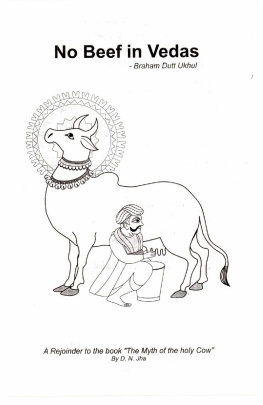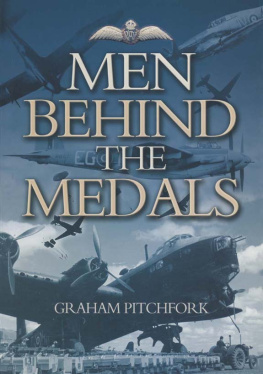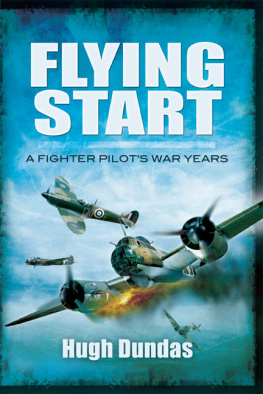
This edition is published by Arcole Publishing www.pp-publishing.com
To join our mailing list for new titles or for issues with our books arcolepublishing@gmail.com
Or on Facebook
Text originally published in 1961 under the same title.
Arcole Publishing 2017, all rights reserved. No part of this publication may be reproduced, stored in a retrieval system or transmitted by any means, electrical, mechanical or otherwise without the written permission of the copyright holder.
Publishers Note
Although in most cases we have retained the Authors original spelling and grammar to authentically reproduce the work of the Author and the original intent of such material, some additional notes and clarifications have been added for the modern readers benefit.
We have also made every effort to include all maps and illustrations of the original edition the limitations of formatting do not allow of including larger maps, we will upload as many of these maps as possible.
NIGHT FIGHTER
by
WING COMMANDER J. R. D. BRAHAM
D.S.O., D.F.C., A.F.C., C D .
Belgian Order of the Crown
and Croix de Guerre
TABLE OF CONTENTS
Contents
TABLE OF CONTENTS
DEDICATION
To Sticks and Jacko and the other brave men who during the war and since have entrusted their lives in the air to my care
FOREWORD
by
Air Chief Marshal Sir Basil Embry,
G.C.B., K.B.E., D.S.O., D.F.C., A.F.C., R.A.F. (Retd.)
How right Bob Braham is when he says that his and Johnnie Johnsons combat records cannot be compared. The one fought mostly by night and was a great individualist; the other mainly by day and was a born Wing Leader. Whereas the number of victories in combat was undoubtedly a measure of individual success, both would agree that it was their personal overall contributions to the war in the air which was the most important factor of all.
Of Braham, about whom these few lines are written, I have never met anyone to surpass his sheer aggressive fighting spirit and one who was more determined to come to grips with the enemy in the air. He dedicated himself body and soul to this mission from the first day of the war to the moment he was shot down in June, 1944. Nothing was allowed to stand in the way of the fulfilment of this duty. Fatigue and operational strain were brushed aside and even the attractions of family life were subordinated to the grim business of war.
The relentless determination to get at the enemy, coupled with tremendous courage, vitality, skill and operational experience made him a dangerous and formidable opponent to meet in the air by the end of 1943. How fortunate for us, and Bomber Command in particular, that he was born of British and not Teutonic stock.
By the end of 1943, he showed all the signs of operational fatigue and should not really have been allowed to fly any more against the enemy. But his experience was wanted to help devise the tactics for night interdiction in support of land forces and this entailed a certain amount of operational flying. What he could give to the Allied cause in this field had to be weighed against the unfairness and effect of over-flying this willing and very gallant young officer. I must take responsibility for the decision. It must also be remembered that operational flying had been his occupation since the age of nineteen and it was so much in his system that it acted on him like a drug. To deny him of it at a time when victory was in sight might have damaged his spirit irrevocably. His natural ambition was to be in at the kill.
This book is an honest story, simply told, of the day-to-day life of one of the greatest fighting airmen of our time. If it reveals some cynicism towards life, manifest in an attitude of make merry today, because tomorrow we die, who among those who did not share their dangers, dare criticize?
Bob Braham stands out in the forefront of that band of airmen who did so much to preserve the civilization of the world against the forces of evil.
The effect which the strain of war and hazardous operational flying had on his nervous system is revealed in his post-war difficulties of settling down to peace routine. That is the price of war no government or country can repay. But let those who now live in freedom never forget that it was won by the sacrifice of Bob Braham and men of his kind.
15 May, 1961
BASIL EMBRY
INTRODUCTION
by Robert Spreckels
Ace German fighter-pilot of the Second World War
That day, June 25, 1944, when I shot down Wing Commander Bob Braham in air combat over Denmark, was to change my life profoundly and particularly my attitude to war.
I was then a keen young German fighter-pilot who, like Braham at the time, had only one consuming aim in lifeto destroy the enemy.
Today I am proud to call Bob Braham my friend and I was delighted and honoured when he asked me to write a brief foreword to his book.
How this transition from enemy to friend took place makes a strange story. During the evening of that June day nearly seventeen years ago, I was celebrating my victory with my comrades. Brahams was the third Mosquito I had shot down and he had given me a hard fight. Mosquitoes were seldom destroyed by our day-fighters because of their speed and their clever manoeuvres. I was surprised in the midst of the celebration to be called to the phone and to be told that our General wished to congratulate me. The reason for this unusual jubilation, I was told, was that I had shot down one of the most famous of all British night-fighter aces. Of course we had all heard of the exploits of Bob Braham. I suddenly had a strong impulse to meet my formidable opponent face to face and I asked if it was possible. The result was that we met a few days later at the interrogation camp at Oberursel, near Frankfurt. A disturbing turmoil of feelings possessed my mindand no doubt hisas we first shook hands. The cruelty and horror of war faded away and I seemed to be looking at an old friend. I instinctively admired a man who was obviously what we should call a devil of a fellow. He had just escaped death as if by a miracle and I found myself deeply thankful that he had survived.
At the time, of course, he could not speak frankly. But as we sat opposite to each other at a table I felt the comradeship of an old friend rather than a foe. What he said to me about the course of the war which was then beginning its last and most terrible phase for us made a deep impression on me.
I had grown up under Hitler and, like all my generation, ,my mind was completely imprisoned by the propaganda to which we had been subjected. For the first time Braham opened my eyes to a different world from that which I had hitherto believed to be the only right and good one.
Braham knew that Germany could not win the war. I was only just beginning to realize what a hopeless position my country was in. At the end of the conversation he said he hoped I would survive and I was sure the wish came from his heart. Then he said he would buy me a glass of whisky when first we met after it was over. Neither of us could have believed then that this meeting was likely.
My meetings with Braham in 1944 set me thinking that, perhaps, if comradeship such as ours could suddenly blossom between foes in wartime, war itself could be averted for ever if such human relationships could be developed between nations. I survived the war only by a succession of almost incredible escapes. I was shot down four times and if the last crash near Aachen on January 1, 1945, had not kept me in hospital for a long time, I doubt if I should ever have seen Bob Braham again. This was the worst time of all for our fighter pilots.







![Bar Wing Commander Guy P. Gibson VC DSO - Enemy Coast Ahead [Illustrated Edition]](/uploads/posts/book/180257/thumbs/bar-wing-commander-guy-p-gibson-vc-dso-enemy.jpg)


